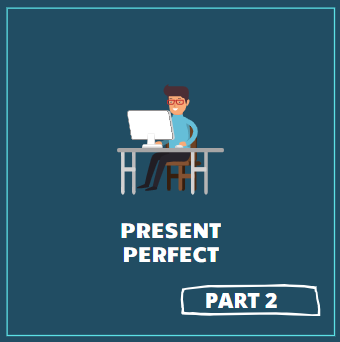Problems, problems…
In my last blog, I explained why the English Present Perfect tense can be tricky to get right for non-native speakers. Many languages use a similar form to talk about the recent past, reserving the “regular” past tense for more “historic” events. This is far too simple for the English, obviously. We use the present perfect (strictly a “present” tense for us, hence the name) to drag up things from the past that are still alive and causing consequences in the present. If a friend tells you “I’ve had problems with him…”, they’re not about to tell you some anecdotes; they’re saying that those problems haven’t been forgotten or forgiven and represent an obstacle to contracting the guy today. Present perfect is the past that’s still bothering you now. It’s the hangover tense.
Meanings of HAVE
It’s hard to explain this weird sense of using the past to say something in the present and the present perfect is one of those “simple” things that many teachers (including me) feel that we never get quite right. The closest I’ve come was when I found that Spanish has two different options to translate the English verb have. The main verb for possession is tener, so “I have a bike” is “Yo tengo bici”, but to form the equivalent of a present perfect, you need a different verb. Spanish uses haber to translate the “auxiliary” use of have in “I have finished it”, so you get “Yo lo he terminado”. It interested me that I never had problems to distinguish these two verbs in Spanish (using two different words for to be still gives me nightmares).
I thought how strange it would be to say “yo lo tengo terminado” until I realised that it wasn’t strange. It’s a perfectly correct sentence in Spanish meaning something like “I’m free now because I’ve completed a task”, and for me, this comes closest to how I’m thinking when I use a present perfect in English. It’s an experience that I “have” (or don’t have) now, present and relevant to what I feel and what I’m telling you. The fact that I’ve written half of this blog means that I still have another half to do…
Follow your instincts…
If that all sounds a bit theoretical to you, I agree, and the truth is that it’s often subjective and you don’t need to be perfect. Start by focusing on the positives. Some uses don’t seem to cause problems, either because you learn them through repetition or because they have a “internal logic”. These include life experiences (“I’ve managed shops”) and expressing duration, often with continuous forms (“I’ve been working for hours”). If you use phrases like these without thinking, carry on. Your instincts are good and you’ll rarely be wrong.
PAST for the rest
The best news is that this problem may soon be over. The past seems to be winning the battle in US English and I often hear “I just arrived” or the question “Did you ever see…?” where Brits might use present perfect forms. The truth is, in any version of English, the past is likely to be the safest option and if you’re tempted to just ditch the present perfect altogether, I sympathise. Follow your instincts for the uses mentioned above and throw the rest in the past, at least until your teacher comes up with a workable solution.


